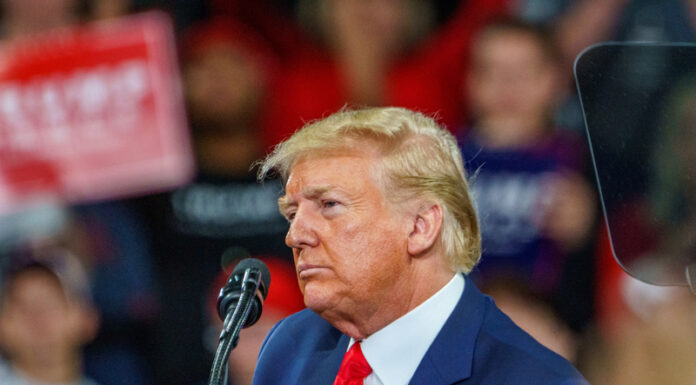In a landmark moment for American politics, Donald Trump received an unconditional discharge Friday, January 10, 2025, in Manhattan, New York City, following his conviction on 34 felony counts related to falsifying business records, making him the first person convicted of a felony to assume the presidency.
During the brief hearing, which Trump attended remotely from Florida, appearing on screen in front of two American flags, Justice Juan Merchan delivered a succinct message: “Sir, I wish you Godspeed as you assume a second term in office.”
The sentencing marked the culmination of a complex legal saga centered on hush money payments made to adult film star Stormy Daniels and former Playboy model Karen McDougal. The case focused primarily on a $130,000 payment to Daniels and $150,000 to McDougal to suppress stories about alleged relationships with Trump before the 2016 election.
Trump voiced his frustration during the proceedings, stating, “This is a case that should have never been brought, it’s an injustice, of justice. The fact is, I’m totally innocent, I did nothing wrong.”
Manhattan District Attorney Alvin Bragg’s prosecution relied heavily on testimony from Michael Cohen, Trump’s former attorney, who told jurors about coordinating the payments. During the trial, a recording was played where Trump discussed the payment amounts, asking Cohen, “What do we got to pay for this? One-fifty?” regarding the McDougal payment.
The trial featured explicit testimony from Daniels, who detailed an alleged encounter with Trump at a July 2006 celebrity golf tournament in Lake Tahoe, California. Cohen testified that Trump authorized the payment to Daniels just before the 2016 election, particularly after the release of the “Access Hollywood” tape. “He said, ‘Absolutely. Do it. Take care of it,'” Cohen testified.
Prosecutor Joshua Steinglass emphasized the significance of the jury’s decision, stating that the verdict was “unanimous and decisive” and “must be respected.”
Trump maintained his innocence throughout the proceedings, declaring on Truth Social that “Today’s event was a despicable charade, and now that it is over, we will appeal this Hoax, which has no merit, and restore the trust of Americans in our once great System of Justice.”
The payments were allegedly disguised through a series of fraudulent invoices and ledger entries marked as legal services. Jurors examined 11 invoices, 12 digital ledger entries, and 11 checks to Cohen, most bearing Trump’s signature.
Bragg’s office pursued the case using an unusual legal theory, arguing that falsifying business records became a felony when done to cover up another crime. The underlying crime, prosecutors alleged, was a scheme to hide damaging information from voters before the 2016 election, violating New York election law prohibiting “conspiring to promote or prevent someone’s election through unlawful means.”
The unconditional discharge means Trump faces no jail time, probation, or fines. However, as a convicted felon, he may encounter certain restrictions, including potential limitations on international travel and firearm possession, though his status as president could affect how these restrictions apply. He retains his right to vote in Florida and remains eligible to hold federal office, as the Constitution does not bar felons from serving as president or in Congress.
The case represented one of four criminal cases Trump has faced, but it was the only one to reach trial before the 2024 election. His federal cases regarding classified documents at Mar-a-Lago and the January 6 Capitol riot have been suspended following his election victory. A Georgia case alleging election interference remains in limbo after an appeals court removed the local district attorney due to a controversy involving her romantic relationship with the lead prosecutor.
Trump’s legal team had attempted to block the sentencing through appeals to state and federal courts, arguing that it would interfere with his preparation for assuming the presidency. The Supreme Court ultimately declined to intervene, determining that the burden of sentencing would be “relatively insubstantial.”
The timing of the sentencing was affected by various legal maneuvers, including Trump’s lawyers’ attempts to argue for reversal based on the Supreme Court’s “presidential immunity” ruling, which held that presidents cannot be prosecuted for their “official acts.” Trump’s team contended that the trial was “tainted” by evidence from his White House tenure, while prosecutors countered that concealing hush money payments was not an “official” presidential act.








